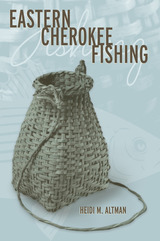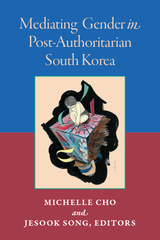2 books by Altman, Heidi M.

Eastern Cherokee Fishing
Heidi M. Altman
University of Alabama Press, 2006
Cherokee identity as revealed in fishing methods and materials.
In Eastern Cherokee Fishing, life histories, folktales, and reminiscences about fish gathered from interviews with Cherokee and non-Cherokee people provide a clear and personal picture of the changes in the Qualla Boundary (Eastern Band of the) Cherokee in the last 75 years. Coupled with documentary research, these ethnographic histories illuminate changes in the language, culture, and environment (particularly, aquatic resources) since contact with Europeans and examine the role these changes have played in the traditions and lives of the contemporary Cherokees.
Interviewees include a great range of informants, from native speakers of Cherokee with extensive knowledge of traditional fishing methods to Euro-American English speakers whose families have lived in North Carolina for many generations and know about contemporary fishing practices in the area. The topic of fishing thus offers perspective on the Cherokee language, the vigor of the Cherokee system of native knowledge, and the history of the relationship between Cherokee people and the local environment. Heidi Altman also examines the role of fishing as a tourist enterprise and how fishing practices affect tribal waters.
[more]

Under the Rattlesnake
Cherokee Health and Resiliency
Edited by Lisa J. Lefler, with a foreword by Susan Leading Fox
University of Alabama Press, 2009
Provides a balanced portrait of Cherokee health issues
For the Cherokee, health is more than the absence of disease; it includes a fully confident sense of a smooth life, peaceful existence, unhurried pace, and easy flow of time. The natural state of the world is to be neutral, balanced, with a similarly gently flowing pattern. States of imbalance, tension, or agitation are indicative of physical, mental, emotional, or spiritual illness and whether caused intentionally through omission or commission, or by outside actions or influences, the result affects and endangers the collective Cherokee.
For the Cherokee, health is more than the absence of disease; it includes a fully confident sense of a smooth life, peaceful existence, unhurried pace, and easy flow of time. The natural state of the world is to be neutral, balanced, with a similarly gently flowing pattern. States of imbalance, tension, or agitation are indicative of physical, mental, emotional, or spiritual illness and whether caused intentionally through omission or commission, or by outside actions or influences, the result affects and endangers the collective Cherokee.
Taking a true anthropological four-field approach, Lefler and her colleagues provide a balanced portrait of Cherokee health issues. Topics covered include: an understanding of the personal and spiritual impact of skeletal research among the Cherokee; the adverse reactions to be expected in well-meaning attempts to practice bioarchaeology; health, diet, and the relationship between diet and disease; linguistic analysis of Cherokee language in historical and contemporary contexts describing the relationship of the people to the cosmos; culturally appropriate holistic approaches to disease prevention and intervention methodologies; and the importance of the sacred feminine and the use of myth and symbolism within this matrilineal culture. All aspects—physical, mental, emotional, and spiritual—figure into the Cherokee concept of good health. By providing insight into the Cherokee perspective on health, wellness, and the end of the life cycle, and by incorporating appropriate protocol and language, this work reveals the necessity of a diversity of approaches in working with all indigenous populations.
[more]
READERS
Browse our collection.
PUBLISHERS
See BiblioVault's publisher services.
STUDENT SERVICES
Files for college accessibility offices.
UChicago Accessibility Resources
home | accessibility | search | about | contact us
BiblioVault ® 2001 - 2024
The University of Chicago Press









